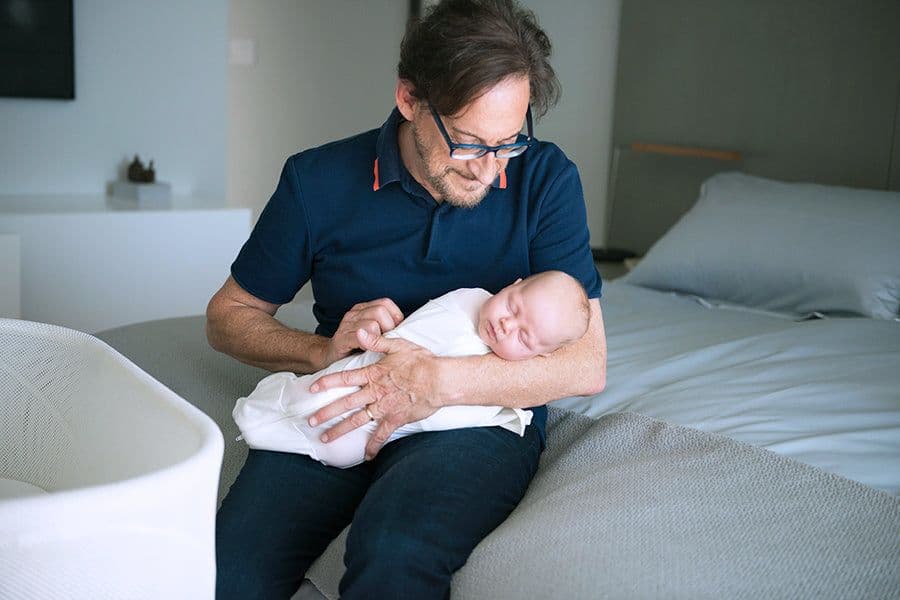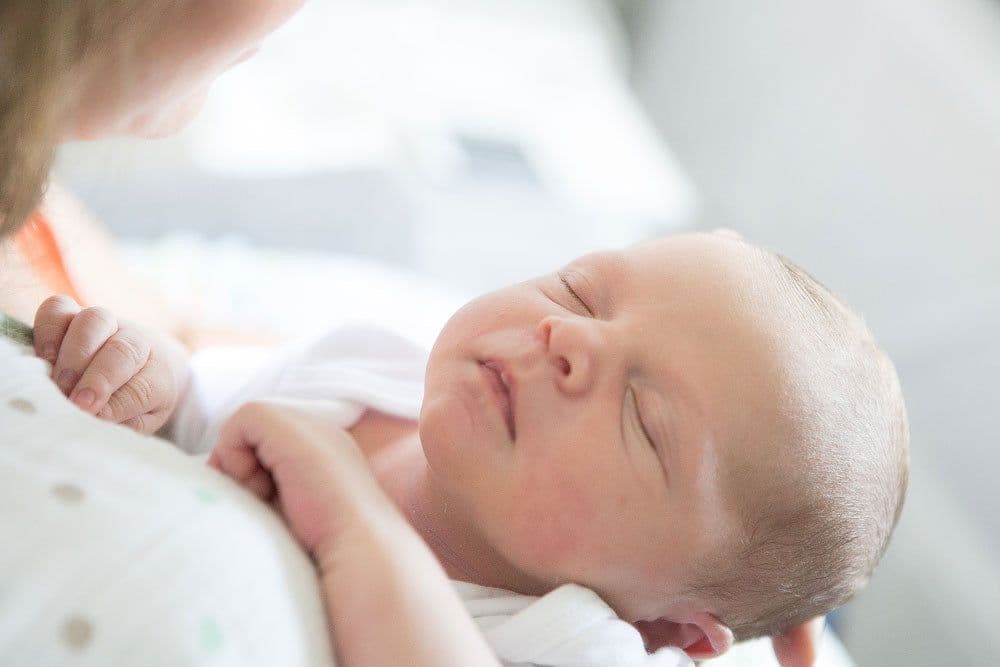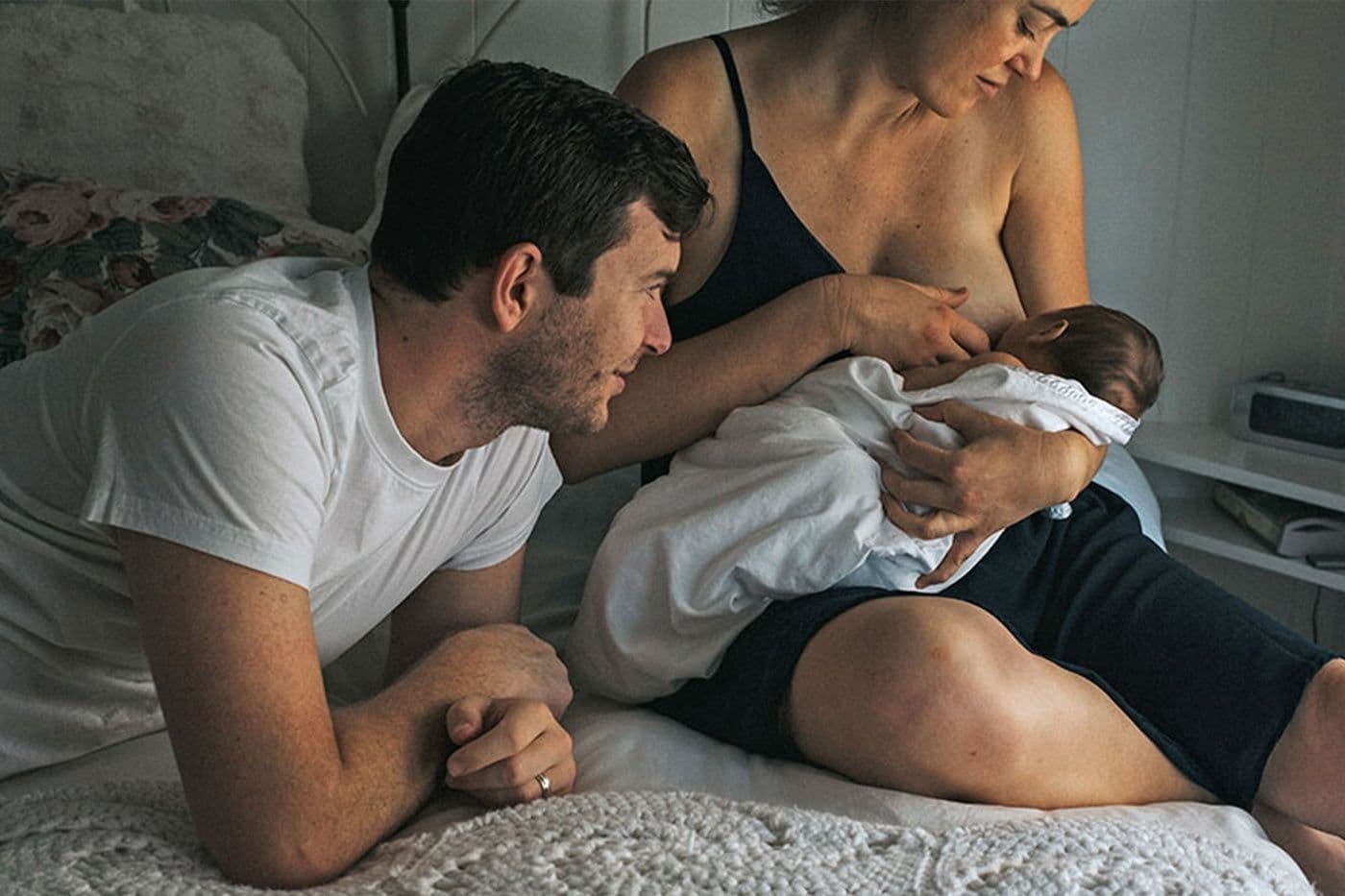PREGNANCY
Glucose Goddess’ Best Advice for Gestational Diabetes
Author and biochemist Jessie Inchauspé shares her tips for dealing with gestational diabetes.
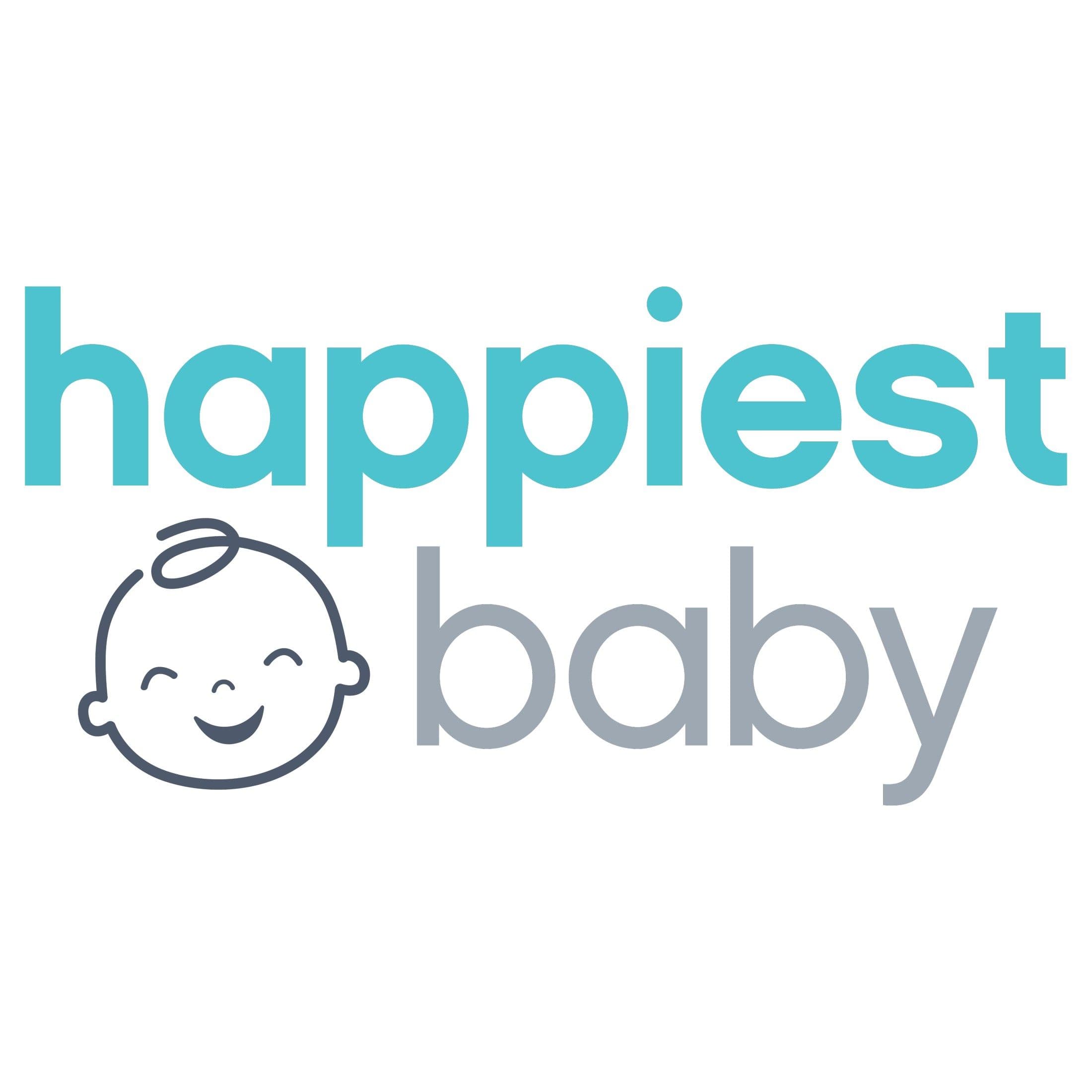
Written by
Happiest Baby Staff
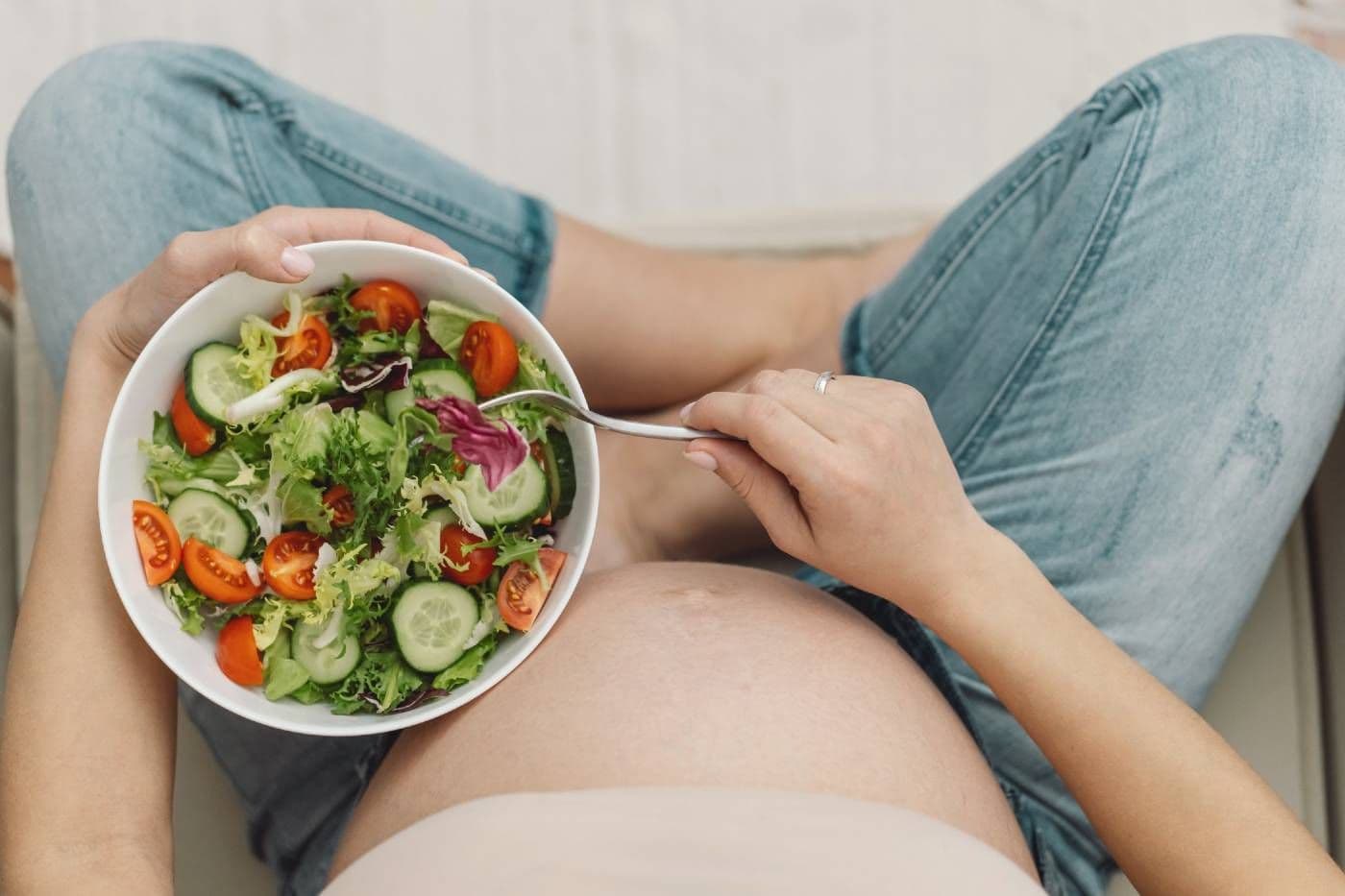
This article was written by guest contributor Jessie Inchauspé, the Glucose Goddess. Remember to speak to your doctor before making any changes to your diet.
One of the most common messages I receive on my Glucose Goddess Instagram is: “I just got diagnosed with gestational diabetes. I’m so shocked! I’m healthy. I never thought this would happen to me.”
Gestational diabetes is one of many conditions linked to blood sugar, aka glucose. And as a biochemist who studies the effect of food on our blood sugar levels, I’m here to help. I make the latest science accessible to help everyone balance their glucose levels and feel better. As it turns out, we all benefit from this, not just those with gestational diabetes. The outcomes of implementing my glucose hacks are many, from no more cravings, clearer skin, reduced inflammation, and better sleep. to an easier time managing gestational diabetes. Here is what you need to know about it.
Gestational diabetes is not your fault.
In all people, a hormone called insulin increases during pregnancy. This is normal and expected. And it happens because insulin encourages growth—growth of the baby, and growth of breast tissue to prepare for breastfeeding.
Interestingly, insulin is also the hormone responsible for regulating our glucose levels and keeping them in an optimal range. Unfortunately, sometimes this extra insulin can lead to something called insulin resistance, where the body no longer responds to insulin as well as it once did. As a consequence, glucose levels rise right along with insulin: Neither are regulated as well as they used to be. This is what we call gestational diabetes. It’s a scary experience for mothers, even more so because it gets worse as the baby’s due date approaches.
You can change gestational diabetes’ impact on you and your baby.
People with gestational diabetes need to know that slight tweaks to eating habits can flatten their glucose curves, which can help immensely. Namely, pregnant individuals can reduce their likelihood of needing medication to control blood sugar, and their likelihood of requiring a cesarean section. Eating for glucose control can also limit the mom-to-be’s weight gain during pregnancy and reduce the birth weight of their baby, which is good because higher than normal blood sugar levels in mothers can cause their babies to grow too large, making birth more difficult.
View this post on Instagram
A post shared by Glucose Goddess (@glucosegoddess)
Fruit tweaks can help keep your glucose levels steady.
You might have heard people say that “natural” sugar from fruit is healthy, while the granulated sugar you put in your coffee isn’t. The thing is: Granulated sugar actually comes from vegetables (corn or beets usually). In reality, it’s not the source of sugar that defines how good or bad it is for us. It’s the concentration and what the sugar comes with. For instance, in whole fruit, sugar is accompanied by water and fiber. The water means we’d be hard pressed to eat more than three mangoes in one sitting, and the fiber lines our intestine and slows down the absorption of sugar into our body, which is good for our glucose levels.
As soon as we dry, juice, or puree fruit, we increase the concentration of sugar. The result is an unhealthy glucose spike. So, it’s best to avoid things like dried mango, orange juice, and fruit smoothies when you’re trying to control your gestational diabetes. Whole fruit is the only glucose-healthy way to consume fruit.
View this post on Instagram
A post shared by Jessie Inchauspé (@glucosegoddess)
Vegetable juices are fine for our glucose, though, because vegetables don’t contain sugar.
Rethinking breakfast can help with gestational diabetes.
For many, sweet breakfasts are the norm, but they wreak havoc on glucose. One of the most powerful things you can do for your glucose levels it to switch from a breakfast that tastes sweet to one that doesn’t. No calorie counting required! Just make sure what you’re eating isn’t sweet. That means: Forego foods like cereal, muesli, oats, fruit juice, in favor of things like eggs, 100% whole grain toast, nuts, and cheese. And know that pairing carbohydrates (say, whole wheat toast) with protein (like, eggs) and healthy fats (avocado, for instance) prevents spikes in blood sugar.
And for those of you who can’t go without morning oats, check out my guide to eating oats without a spike. I teach my community so many more science-based hacks to keep their glucose levels steady while still eating what they love, so please check out my Instagram account for many more tips.
View this post on Instagram
A post shared by Jessie Inchauspé (@glucosegoddess)
Small changes work!
If you think tiny hacks like trading dried fruit for whole and swapping cereal for eggs in the morning can’t possibly do enough to combat gestational diabetes, I’d like you to meet Alicia. She’s in her late twenties, a self-described “health nut,” who watches what she eats and works out every day—and continued doing so well into her first pregnancy. It’s no wonder that her gestational diabetes diagnosis came as such a shock. She was scared, both for herself and her baby. Alicia also felt judged by her friends and family. They couldn’t believe her diagnosis either. What, you? We thought you were healthy. How’s that possible?
As the months progressed toward her due date, Alicia’s glucose levels kept rising, and her insulin resistance got worse. Alicia felt out of control. She really thought she was eating healthily...including snacking on lots of dried fruit to satisfy her sugar cravings. Then she started reading the Glucose Goddess Instagram.
Alicia wrote to me that the information she found on the Glucose Goddess Instagram account finally made her realized that her gestational diabetes diagnosis was not her fault. The posts and information she read there helped her see that gestational diabetes happens to many healthy people—and it can be reversible. Alicia learned things that she could do to flatten her glucose curves and avoid going on medication.
So, she quit the dried fruit she used to eat every day. Then, she went savory for breakfast, swapping her usual oats for eggs. These small modifications helped her manage her gestational diabetes so well that she maintained a healthy weight throughout her pregnancy—and didn’t have to go on medication. And when Alicia’s baby boy arrived, he was happy and healthy—and so was she!
Have questions about preventing or controlling your gestational diabetes? Want me to help you put all this together? You can pre-order my book—the best practical guide for steadying your glucose.
Jessie Inchauspé is a biochemist who started testing the effect of food on her glucose levels in 2018. She now shares everything she’s learned on her Instagram, Glucose Goddess.
Disclaimer: The information on our site is NOT medical advice for any specific person or condition. It is only meant as general information. If you have any medical questions and concerns about your child or yourself, please contact your health provider.
SHARE THIS ARTICLE
MOST LOVED
Sleepytime Sidekicks
